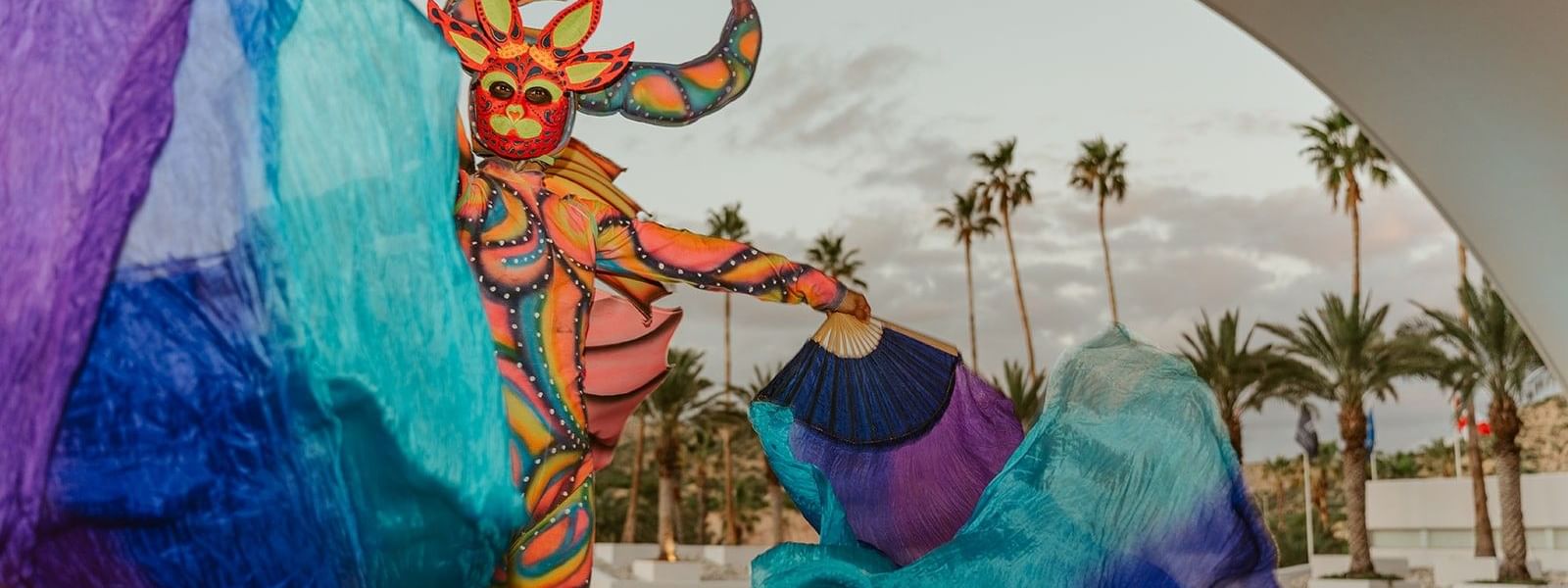The Day of the Dead Altar
When the Spanish missionaries arrived, this tradition merged with All Saints’ Day. By combining the offerings with the Spanish festivity, people began setting up altars adorned with candles and bone-shaped sweets, giving rise to the famous pan de muerto (bread of the dead) and sugar skulls. Embroidered tablecloths were replaced with the more accessible papel picado, a decorative craft made by cutting intricate designs into sheets of tissue paper. Today, an altar includes the favorite food and drinks of the departed to honor their life, as well as personal belongings and, of course, decorative elements to commemorate them.
The Day of the Dead is a tradition that celebrates our loved ones who have passed away. This celebration has been recognized by UNESCO as an Intangible Cultural Heritage of Humanity and remains a source of pride for Mexicans. The altars are filled with symbolism, representing the Mexican view of death—with joy and hope for a life beyond, where our loved ones await us.
At Marquis Los Cabos, the celebration of life is also expressed through culinary art. From October 30 November 1st, the resort presents its traditional Wine Festival, an event that unites a passion for gastronomy and wine in an atmosphere that delights the senses.
Over two evenings, Marquis Los Cabos will celebrate the International Wine Festival, an event of flavors and traditions in wich our restaurants will offer six-course dinners carefully paired with selections from renowned wineries. At Vista Ballenas, Bodega Lechuza will accompany a menu highlighting the flavors of the Pacific, while at Canto del Mar, wines from Bodegas Henri Lurton and Valle de Tintos will harmonize with the restaurant’s cuisine to create unique experiences by the Sea of Cortés. Each evening will feature background music, and on the night of the 31st, live music will add a special touch to the celebration. For more information or reservations visit our offers section.
THE MARQUIS ALTAR
To honor our departed during this season, Marquis Reforma Mexico City presents its traditional altar, composed of stunning pieces crafted by Mexican artisans. Leading the collection is Óscar Soteno, a world-renowned artisan known for his Trees of Life, which will adorn the hotel’s most iconic spaces. The altar features calacas and catrinas that reflect the customs and joyful spirit of the Mexican people.
Óscar Soteno is the son of acclaimed potter Alfonso Soteno and grandson of Modesta Fernández. He has been recognized as a Great Master of Mexican Folk Art by Fomento Cultural Banamex. The Soteno family is celebrated for their clay artistry in the Pueblo Mágico of Metepec. Their works are part of the collections of the British Museum in London, the National Museum of Anthropology and History, and the Museum of Popular Art of Mexico.
For Mexicans, creating an altar is a way to reach our departed and connect with their memory. The ofrenda is a reunion with a ritual that calls upon remembrance.






